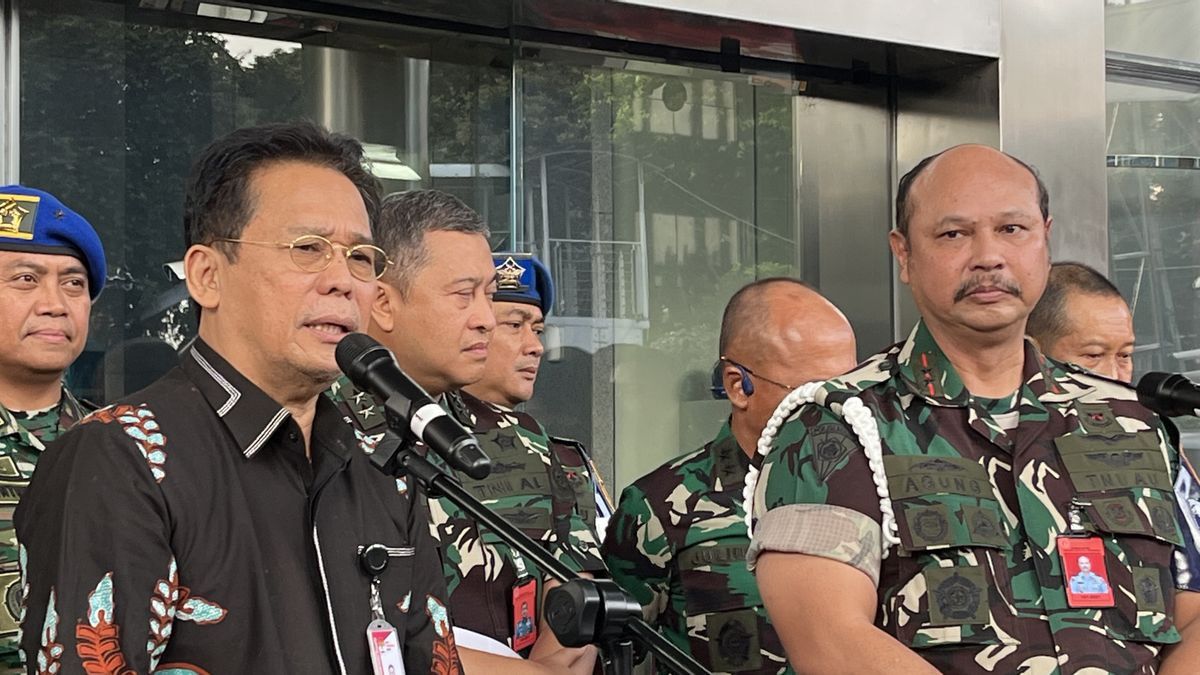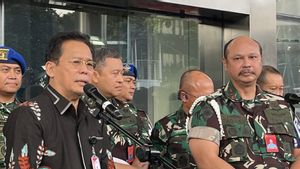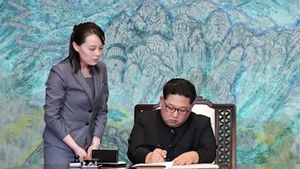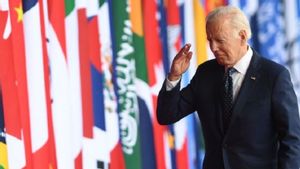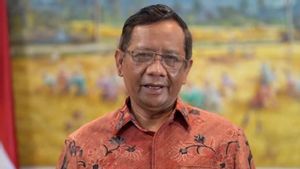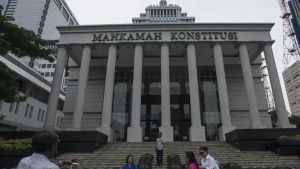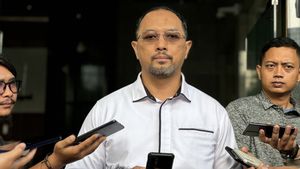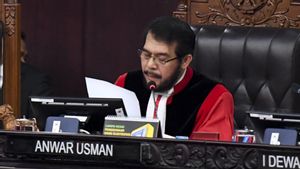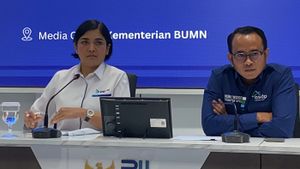JAKARTA - A number of civil society organizations and legal aid agencies assess that the Corruption Eradication Commission (KPK) has the authority to examine corruption cases at the National Search and Rescue Agency (Basarnas) even though it involves two active TNI soldiers.
Therefore, according to representatives of each organization during the media briefing in Jakarta, Sunday, July 30, the jurisdictional issues that arise in this case do not really need to be debated, because the KPK's authority to examine corruption cases at Basarnas is in accordance with legal principles, the 1945 Constitution of the Republic of Indonesia (UUD 1945), and laws and regulations.
Amnesty International Indonesia Executive Director Usman Hamid, in the media briefing, explained that there are three legal principles that guarantee the KPK's authority to examine corruption cases at Basarnas, even though it involves TNI soldiers.
"The first legal principle is that higher laws rule out lower laws. The second legal principle, the new law rules out old laws. The third legal principle, a special law, rules out more general laws," said Usman Hamid, who is currently also active as a lecturer at a law high school in Jakarta, as reported by Antara.
He explained that the 1945 Constitution as a state constitution oversees the laws under it, including laws governing general courts and military courts.
Usman said Article 27 paragraph (1) and Article 28D of the 1945 Constitution regulate the position of all citizens, without exception, equally in the law. Everyone, without exception, has equal standing before the law, both civilians, citizens with the status of members of the National Police, and residents with the status of members of the TNI. Anyone should not be above the law, "said Usman Hamid.
Related to that, he emphasized that TNI members are part of Indonesian citizens, which means they have the same position as other civilians in undergoing the legal process as regulated in the 1945 Constitution.
Then, regarding the legal principles that have just ruled out the old law, Usman highlighted the use of Law Number 14 of 1970 concerning Basic Provisions for Judicial Power, Law Number 31 of 1997 concerning Military Courts, and Law of the Year 2004 concerning the Indonesian National Army (TNI).
"If there is a Military Court Law, of course the 1970 Law on Judicial Power will no longer apply, but if there is a 2004 TNI Law, then all laws behind it will be put aside," said Usman Hamid.
He emphasized the contents of Article 65 paragraph (2) of the TNI Law which regulates TNI soldiers to submit to the rule of military justice in terms of violations of military criminal law, and subject to the rule of general justice in terms of violations of general criminal law.
The third legal principle, he continued, is a law that specifically rules out general laws. Usman assessed that corruption cases are part of a special crime, not a general crime.
"The debate about military justice or general justice should no longer apply, because the debate only discusses which jurisdictions when members of the TNI commit general crimes. What happens (at Basarnas) is not a general crime, what is happening now is a special crime," he said.
He also highlighted the judiciary of connectivity regulated in Law Number 8 of 1981 concerning the Criminal Procedure Code (KUHAP). In the Criminal Procedure Code, especially Article 89, Article 90, Article 91, and Article 92, the connectivity mechanism applies when civilians together with members of the TNI commit general crimes, not special crimes.
"Criminal corruption is not a general crime. Corruption has nothing to do with military duties, it has nothing to do with military interests," he said.
Usman conveyed Article 89 of the Criminal Procedure Code that if a criminal act is committed by civilians and members of the TNI, then the examination of the case is under the authority of the general court. Unless, there is a decision of the defense minister (menhan) and the minister of justice/minister of law and human rights (menkumham) who determines the case to be examined by the military court.
"In the Basarnas case, there is no decision by the Defense Minister, there is no decision by the Minister of Law and Human Rights," he said.
Then, Article 90 of the Criminal Procedure Code further regulates that if there is a debate over jurisdiction, then there needs to be a joint study as outlined in the minutes and signed by the parties. Kuncinya, joint research and stated in the minutes,' he said.
VOIR éGALEMENT:
Finally, Article 91 of the Criminal Procedure Code, which according to Usman is very important to determine the jurisdiction of examining a case.
"Article 91 is very important, (because it regulates) if there is a debate between the military justice authorities and the general court, it must be calculated from the heavy point of loss," said Usman.
If the loss is heavier in the public interest, then the case will be investigated by the general court. On the other hand, if the loss of a case is more detrimental to the interests of the military, then the case will be brought to military justice.
"If a corruption case occurs within the SAR agency formed by the TNI for TNI's duties, it is clear that it was brought to the military court, but what occurred was corruption in the national SAR Agency, not the TNI's limited environment," he said.
Dalam taklimat itu, organisasi sipil lainnya yang turut menyampaikan sikap antara lain dari YLBHI, KontraS, Lingkar Madani, Centra Initiative, ICW, PBHI, Setara Institute, ELSAM, Forum De Facto, KPI, HRWG, dan Imparsial.
The English, Chinese, Japanese, Arabic, and French versions are automatically generated by the AI. So there may still be inaccuracies in translating, please always see Indonesian as our main language. (system supported by DigitalSiber.id)
